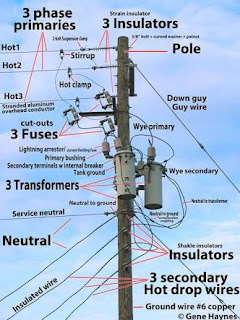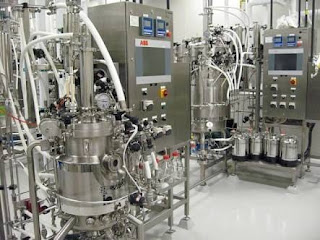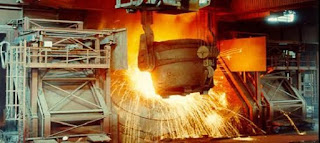COURSES OF ENGINEERING
INTRODUCTION TO ENGINEERING :
Each
of the seven engineering departments teaches an introductory engineering
elective course. Each first-year engineering student must choose one such
course per semester (for a total of two).
The purpose of these courses is to
allow students to get a glimpse of engineering from the beginning of their
studies at Carnegie Mellon and to become widely educated in engineering
subjects while learning how to solve engineering problems.
Engineering types:
Computer Science Engineering:

Computer Science Engineering
Computer Science Engineering (CSE) encompasses a wide
variety of disciplines, which relate to computing, such as algorithms,
programming languages, program design, software, and analysis of computer
hardware. Computer science engineering has its roots in electrical engineering,
mathematics and linguistics.
Electronics and Communication Engineering:

Electronics and Communication Engineering
Electronics communications engineers work on electronic
systems that are used to transmit and receive signals. They can be involved in
design, construction and testing systems to ensure that they work properly.
These professionals may work for scientific or industrial companies, or the
military.
Electrical engineering:

Electrical engineering
A current of
electricity is a steady flow of electrons. When electrons move from one place
to another, round a circuit, they carry electrical energy from place to place
like marching ants carrying leaves. Instead of carrying leaves, electrons carry
a tiny amount of electric charge.
Mechanical
Engineering:

Mechanical Engineering
Mechanical Engineer making electric machines, such as power
generators, internal combustion engines, and steam and gas turbines, as well as
machines using electricity, such as refrigeration And design air-conditioning
systems. Mechanical engineers design other machines inside buildings, such as
elevators and escalators.
Information Technology Engineering:

Information Technology Engineering
Information Technology (IT) covers the study and application
of computers and any type of telecommunications that stores, retrieves and
sends information. IT involves a combination of hardware and software that is
used to perform the essential tasks that people need and use everyday.
Civil
Engineering:

Civil Engineering
Civil engineer construction of infrastructure projects and
systems in public and private sector for roads, buildings, airports, tunnels,
dams, bridges and water supply and sewage treatment. , Design, manufacture,
supervise, operate, construct and maintain.
Chemical
engineering:

Chemical engineering
Chemical engineers develop and design chemical manufacturing
processes. Chemical engineers apply the principles of chemistry, biology,
physics, and mathematics to solve problems that involve the production or use
of chemicals, fuels, drugs, food, and many other products.
Aeronautical Engineering:

Aeronautical Engineering
Aeronautical
Information Management encompasses the origination, management and distribution
of time-sensitive, digital aeronautical information in a safe secure and
efficient manner. Gradually, the distribution of aeronautical information will
be via a global System Wide Information Management (SWIM) network.
Agricultural Engineering:

Agricultural Engineering
Agriculture is
the art and science of cultivating the soil, growing crops and raising
livestock. It includes the preparation of plant and animal products for people
to use and their distribution to markets. Agriculture provides most of the
world's food and fabrics.
Traditional
agriculture is mostly done in poor countries. Intensive agriculture is mostly
done in countries with more money. It uses pesticides, machinery, chemical
fertilizers. ... Integrated farming is using local resources, and trying to use
the waste from one process as a resource in another process.
Agriculture not
only gives riches to a nation, but the only riches she can call her own.
Mining Engineering:

Mining Engineering
Mining engineers
work mostly in mining operations in remote locations. However, some work in
sand-and-gravel operations located near large cities. Over time, they may work
their way up to office positions in mining firms or consulting companies, which
are usually located near large metropolitan areas.
Biochemical engineering:

Biochemical engineering
Biochemical
Engineers. develop usable, tangible products, using knowledge of biology, chemistry,
or engineering. Solve problems related to materials, systems, or processes that
interact with humans, plants, animals, microorganisms, or biological materials.
Electrical and instrumentation engineering:

Electrical and instrumentation engineering
The discipline of
Electrical and Instrumentation Engineering deals with the design of devices to
measure physical quantities such as pressure, flow and temperature. It
basically focuses on the study and application of electricity, electronics, and
electromagnetism.
Metallurgical engineering:

Metallurgical engineering
Metallurgical
engineers involved in extraction metallurgy work in laboratories, ore treatment
plants, refineries, and steel mills.
Physical metallurgy is the study of
the structure and physical properties of metals and alloys. It also involves
the many processes used to convert a refined metal into a finished product.
 |
| Computer Science Engineering |
Computer Science Engineering (CSE) encompasses a wide variety of disciplines, which relate to computing, such as algorithms, programming languages, program design, software, and analysis of computer hardware. Computer science engineering has its roots in electrical engineering, mathematics and linguistics.
 |
| Electronics and Communication Engineering |
 |
| Electrical engineering |
 |
| Mechanical Engineering |
 |
| Information Technology Engineering |
 |
| Civil Engineering |
 |
| Chemical engineering |
 |
| Aeronautical Engineering |
 |
| Agricultural Engineering |
 |
| Mining Engineering |
 |
| Biochemical engineering |
 |
| Electrical and instrumentation engineering |
 |
| Metallurgical engineering |

Post a Comment